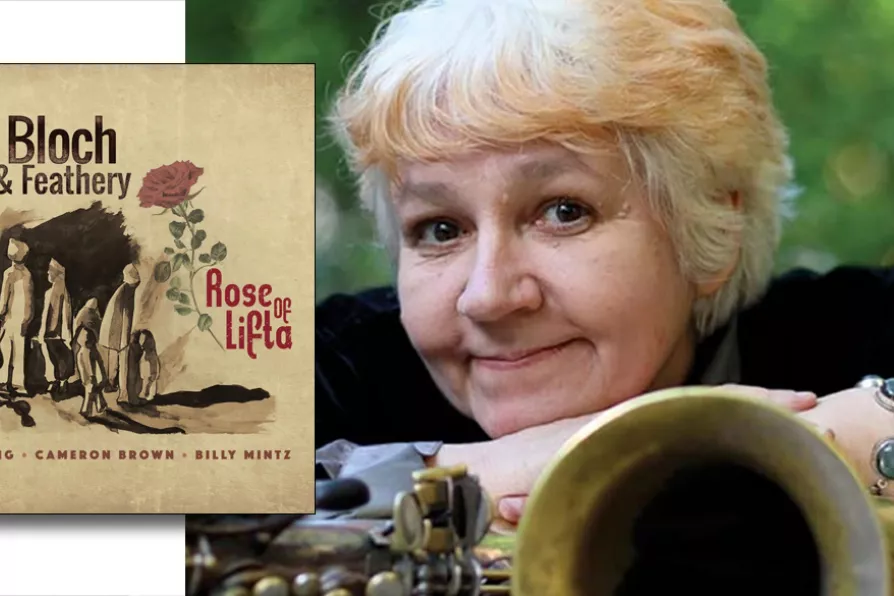MARIA DUARTE reviews Desperate Journey, Blue Moon, Pillion, and Wake Up Dead Man: A Knives Out Mystery
‘The music of human flesh’
CHRIS SEARLE talks with the Moscow-born Israeli saxophonist Lena Bloch about the release of and inspirations behind her album Rose of Lifta

 SUPPORT FOR PALESTINE: Lena Bloch
[www.freshsoundrecords.com]
SUPPORT FOR PALESTINE: Lena Bloch
[www.freshsoundrecords.com]
JAZZ and poetry have always been comrades of culture. Remember Charles Mingus’s collaborations with Langston Hughes, Mike Westbrook’s versions of Blake or Evan Parker’s evocations of William Morris on his solo album Winn’s Win.
But the momentous beauty of tenor saxophonist Lena Bloch’s album Rose of Lifta and its kinship with the Palestinian laureate Mahmoud Darwish creates a sound both unique and an expression of what Darwish called “the music of human flesh.”
Similar stories

CHRIS SEARLE speaks to Ethiopian vocalist SOFIA JERNBERG

CHRIS SEARLE speaks to Rwanda-born jazz vocalist INEZA

CHRIS SEARLE speaks to British Nigerian/Jamaican pianist ROELLA OLORO

CHRIS SEARLE picks his favourites










